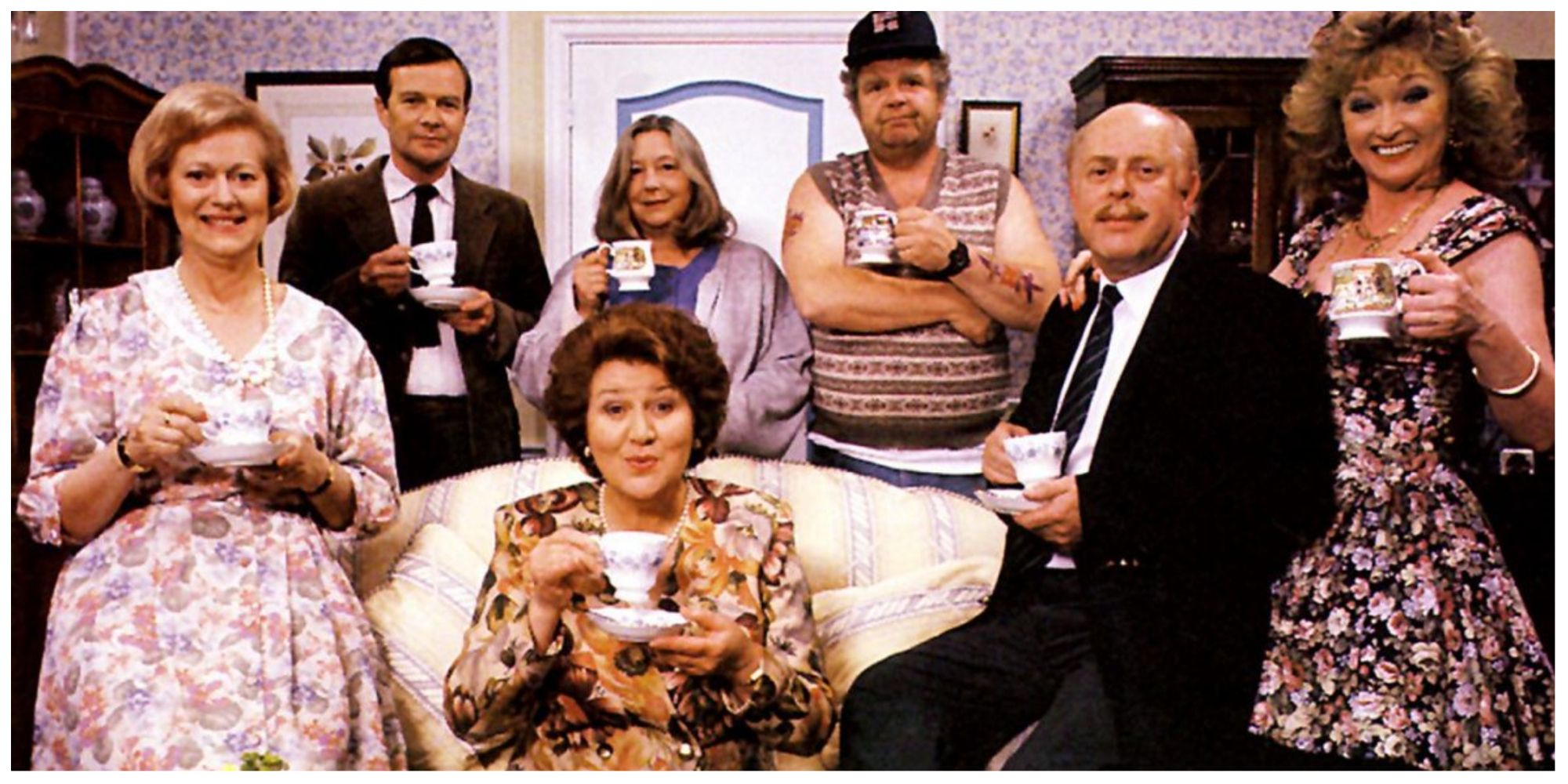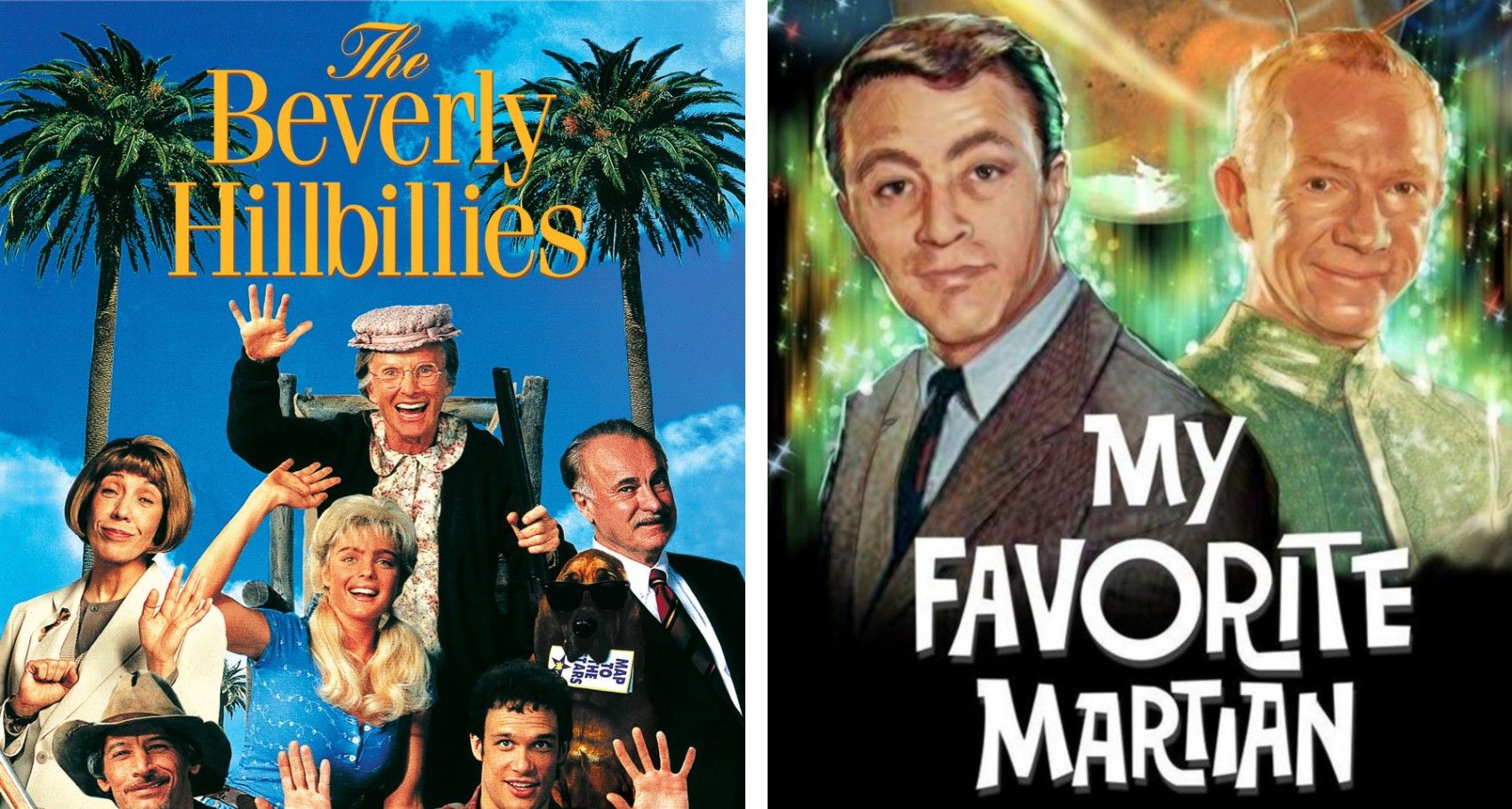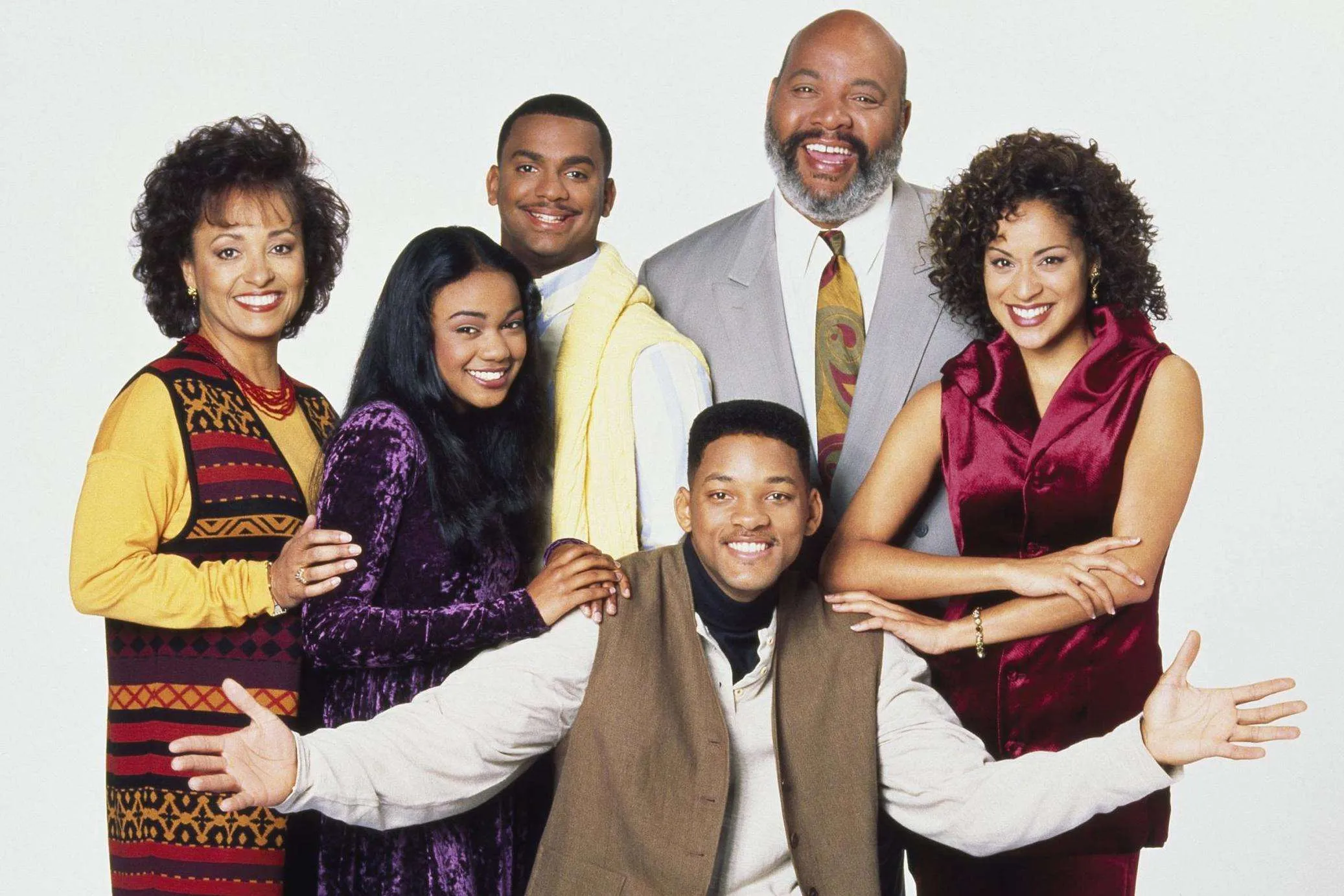Unpacking The Enduring Charm Of 1960s Sitcoms: A Nostalgic Journey
The 1960s were a golden era for television, introducing audiences to groundbreaking series that would go on to become cultural touchstones. From science fiction to unique family dynamics, these shows exercised the imaginations of millions, providing much-needed laughter and escapism during a decade of immense change. Curious about the best '60s TV shows? You're in for a nostalgic trip down memory lane.
Looking back at the sitcoms of the 1950s, they were generally gentle family comedies along the lines of *Leave It to Beaver*, *Father Knows Best*, and *The Donna Reed Show*. However, when you get to 1960s TV sitcoms, there is a marked change in approach. This decade saw a significant evolution in comedic storytelling, with many shows falling into new, distinct categories like "fantasy" or "rural" sitcoms, reflecting a society grappling with rapid transformation. The very best sitcoms of the 1960s have truly stood the test of time and remain beloved by viewers across all ages and generations.
Table of Contents
- The Shifting Landscape of 1960s TV Sitcoms
- The Rise of Rural Sitcoms
- Embracing the Extraordinary: Fantasy and Supernatural Sitcoms
- Beyond Earth: Science Fiction and Anthology Series
- Iconic Characters and Lasting Legacies
- The Sociopolitical Backdrop of the 1960s
- A Glimpse Across the Pond: British Sitcoms of the 1960s
- Why 1960s Sitcoms Still Resonate Today
The Shifting Landscape of 1960s TV Sitcoms
The transition from the 1950s to the 1960s brought about a fascinating evolution in television comedy. While the previous decade largely adhered to the wholesome, idealized family unit, the 1960s saw producers and writers experimenting with more unconventional premises. This wasn't just a subtle tweak; it was a marked change in approach, reflecting a burgeoning desire for escapism and a more diverse range of comedic scenarios. The burgeoning counter-culture, advancements in special effects, and a general loosening of societal norms all played a part in this transformation. Suddenly, the living room wasn't just a place for domestic squabbles; it could be a spaceship, a haunted house, or a quiet rural town far from the urban hustle. This era of television wasn't afraid to push boundaries, leading to some of the most memorable and beloved sitcoms of the 60s.
- Lizzie Mcguire The Movie Cast
- Is Joey Mcintyre Married
- Prospect Park Zoo
- Jim Carreys Girlfriend
- Amc Orange 30
The sheer volume of new content was staggering. In the category of 1960s American sitcoms alone, there are 69 pages listed, indicating a prolific output of comedic series. This vast array of choices meant that viewers had more options than ever before, catering to a wider range of tastes and preferences. The decade was ripe for innovation, and sitcoms rose to the occasion, becoming a significant part of the American cultural fabric. From the whimsical to the truly bizarre, the 1960s laid the groundwork for many comedic tropes and storytelling techniques that would influence television for decades to come.
The Rise of Rural Sitcoms
One of the most distinctive trends among 1960s TV sitcoms was the emergence and popularity of the "rural" sitcom. These shows offered a refreshing contrast to the suburban settings that had dominated the airwaves, transporting viewers to idyllic, often quirky small towns where life moved at a different pace. At the forefront of this genre was *The Andy Griffith Show*, a quintessential example that perfectly captured the charm and humor of rural life. The series centered around widower Sheriff Andy Taylor and his son Opie, who live with Andy's Aunt Bee in the fictional town of Mayberry, North Carolina.
What made *The Andy Griffith Show* so endearing was its gentle humor and focus on character-driven stories. With virtually no crimes to solve, most of Andy's time was spent philosophizing and calming down his well-meaning but often overzealous cousin, Deputy Barney Fife. Stories typically revolved around the boys getting into trouble, with their father doing his best to impart good morals and wisdom to them. This simple premise allowed for rich character development and timeless lessons, making it one of the most beloved sitcoms of the 60s. Other notable rural sitcoms of the era included *The Beverly Hillbillies*, *Green Acres*, and *Petticoat Junction*, each bringing their own unique brand of humor by contrasting country sensibilities with the occasional intrusion of city life or vice versa. These shows provided a comforting escape, celebrating community values and simpler times, resonating deeply with a wide audience.
Embracing the Extraordinary: Fantasy and Supernatural Sitcoms
As the 1960s progressed, television producers became increasingly bold, venturing beyond traditional family dynamics into the realm of the fantastic. There were countless shows of the '60s that had a touch of the supernatural, science fiction, or fantasy, breaking new ground in comedic storytelling. These shows often used their fantastical elements as a metaphor for social commentary or simply to create hilariously absurd situations, making them some of the most memorable and iconic sitcoms of the 60s.
Bewitched and The Addams Family
*Bewitched* was a prime example of this trend, starring Elizabeth Montgomery as Samantha Stephens, a witch who marries a mortal man and tries to live a normal suburban life, often to comical effect. Her magical powers, though intended to be kept secret, frequently caused chaos, leading to a delightful blend of domestic comedy and magical mishaps. Similarly, *The Addams Family* presented a macabre yet loving household that found joy in the grotesque, completely oblivious to the "normal" world's reactions to their eccentricities. Their humor stemmed from their inverted values, where pain was pleasure and gloom was glee, offering a unique satirical take on the typical American family.
The Munsters
Another beloved entry in the supernatural sitcom genre was *The Munsters*. This show featured a family of benign monsters living in a gothic mansion at 1313 Mockingbird Lane. Fred Gwynne led the cast as Herman Munster (Frankenstein's monster) alongside Yvonne De Carlo, who played his wife Lily (a vampire). Their son Eddie was a werewolf, and Lily's father, Grandpa, was also a vampire and a mad scientist. The humor often arose from their attempts to be normal and their confusion over why others found them frightening or strange. Both *The Addams Family* and *The Munsters* premiered in 1964, sparking a friendly rivalry among viewers and solidifying the fantasy sitcom as a popular and enduring format of the decade.
These fantasy-driven sitcoms provided a delightful escape from reality, using their supernatural premises to explore themes of acceptance, normalcy, and the absurdity of everyday life. They proved that comedy didn't have to be confined to the mundane, opening up a world of possibilities for future television series and firmly establishing themselves as groundbreaking sitcoms of the 60s.
Beyond Earth: Science Fiction and Anthology Series
While not all shows with a sci-fi or fantasy bent were strictly sitcoms, the 1960s saw a remarkable blurring of genre lines, with many series incorporating elements of humor into their fantastical narratives. This era was truly groundbreaking, pushing the boundaries of what television could achieve, and these shows, while sometimes dramatic, often contributed to the overall comedic landscape of the decade, making them integral to understanding the broader impact of 1960s TV sitcoms.
Star Trek: A Cultural Phenomenon
Perhaps the most iconic example of a genre-bending show from this period is *Star Trek*. While primarily a science fiction adventure series, its witty dialogue, character interactions, and occasional comedic episodes often gave it a lighthearted feel that resonated with audiences. In the 23rd century, Captain James T. Kirk and the crew of the U.S.S. Enterprise explore the galaxy and defend the United Federation of Planets. The show tackled complex social issues through allegories, but it also delivered moments of genuine humor, often derived from the clash of personalities among the diverse crew or their encounters with strange new worlds. *Star Trek*'s enduring legacy is a testament to the decade's willingness to embrace bold new concepts on television, even if it wasn't a traditional sitcom, it certainly influenced the broader scope of television programming, including future comedic sci-fi ventures.
The inclusion of such ambitious projects alongside traditional sitcoms highlights the dynamic nature of 1960s television. The decade wasn't just about laughs; it was about expanding horizons, challenging perceptions, and exploring the unknown, all while keeping audiences entertained. These series, whether purely comedic or dramatically inclined with humorous undertones, collectively contributed to making the 1960s a truly golden era for television, showcasing the incredible range and creativity that defined the sitcoms of the 60s and beyond.
Iconic Characters and Lasting Legacies
The 1960s was a tremendous time for iconic sitcoms, and their impact extends far beyond their original air dates. These legendary series from the decade scored the highest ratings on IMDb, a testament to their enduring popularity and quality. A look at the best sitcoms of the 1960s reveals a roster of characters and storylines that have become deeply embedded in popular culture, influencing generations of filmmakers, actors, and comedians. From silent chuckles to boisterous laughs, these classic comedies have left a lasting legacy.
For many who grew up in the 1960s, watching these sitcoms was more than just entertainment; it was a formative experience. As one viewer might recall, "Growing up in the 1960's, I watched many a sitcom. I suppose some of these shows helped shape me, in who I am today. I've probably watched every show from every title, multiple times." This personal connection speaks volumes about the power of these shows to resonate deeply with audiences, influencing their perspectives and providing a shared cultural experience. The characters, whether they were the wise Sheriff Andy Taylor, the bumbling Barney Fife, the magical Samantha Stephens, or the ghoulishly charming Herman Munster, became like extended family members in millions of homes.
The enduring appeal of these shows is evident in their continued syndication and streaming availability, allowing new generations to discover their timeless humor. Discussions about the "10 best 60s sitcoms, ranked" are common among enthusiasts, highlighting the continued relevance and debate over their relative merits. The ability of these shows to transcend their original context and remain beloved by viewers across all ages and generations is a clear indicator of their masterful writing, brilliant performances, and universal themes. They didn't just make people laugh; they created a blueprint for character development and comedic timing that continues to inspire and entertain, solidifying their place as true cultural touchstones among the sitcoms of the 60s.
The Sociopolitical Backdrop of the 1960s
The 1960s were one of the most interesting times in American history for a handful of sociopolitical reasons. This decade was a period of immense change, marked by the Civil Rights Movement, the Vietnam War, the Cold War, and significant shifts in social norms and cultural values. While many sitcoms of the era often provided an escape from these turbulent realities, they also, sometimes subtly, reflected the changing times or offered a nostalgic retreat to simpler ideals.
For instance, the rise of rural sitcoms like *The Andy Griffith Show* can be seen as a yearning for a perceived innocence and community spirit amidst the growing unrest and complexity of urban life and national politics. These shows presented a world where problems were solvable, and moral lessons were clear, a stark contrast to the real-world dilemmas unfolding outside the television screen. However, it's also important to acknowledge that television, including sitcoms, was slowly beginning to grapple with the broader societal shifts.
While the provided data mentions "Top ten black sitcoms of all time according to DZI," it's worth noting that the 1960s saw the very early stages of more diverse representation in mainstream sitcoms. Shows like *Julia* (1968), starring Diahann Carroll as a widowed African American nurse, broke ground by featuring a black woman in a non-stereotypical leading role. Although not explicitly a "black sitcom" in the same vein as later shows, its existence reflected the ongoing struggle for civil rights and the marked betterment of the quality of life for African Americans in this country, a movement iconized by figures contributing to these advancements. The sitcom landscape of the 1960s, therefore, was a complex tapestry, offering both comfort and, occasionally, a glimpse into the evolving social consciousness of the nation, even as it primarily aimed to entertain.
A Glimpse Across the Pond: British Sitcoms of the 1960s
While the focus of this discussion has largely been on American sitcoms, it's important to acknowledge that the 1960s was a vibrant decade for comedy across the globe, particularly in the United Kingdom. Just as American television was undergoing a transformation, British television was also developing its own unique brand of sitcoms, many of which would go on to become cultural touchstones in their own right. The category "1960s British sitcoms" lists 62 pages, indicating a significant and diverse output of comedic programming.
British sitcoms of this era often developed a distinct style, characterized by a drier wit, more subtle humor, and a greater emphasis on class distinctions and social satire. Shows like *Steptoe and Son* (1962-1974), which followed the lives of a father and son rag-and-bone business, offered a grittier, more realistic portrayal of working-class life, often tinged with pathos. *Till Death Us Do Part* (1965-1975) was another groundbreaking series, featuring a bigoted working-class man and using his prejudices for satirical effect, sparking both laughter and controversy. While these shows might not have had the same fantastical elements as some of their American counterparts, they pushed boundaries in terms of social commentary and character development.
The existence of such a robust category of British sitcoms from the 1960s highlights the global appeal and evolution of the genre during this period. It demonstrates that the shift in comedic approach wasn't exclusive to the United States but was a broader phenomenon reflecting changing societal attitudes and an increasing sophistication in television production worldwide. The legacy of these British sitcoms, much like their American counterparts, continues to influence comedy writing and performance to this day, showcasing the truly international impact of the sitcoms of the 60s.
Why 1960s Sitcoms Still Resonate Today
The enduring appeal of the sitcoms of the 60s is undeniable. These shows have truly stood the test of time and remain beloved by viewers across all ages and generations. There are several reasons why these classic comedies continue to captivate audiences, decades after their original broadcasts. Firstly, many of them tapped into universal themes of family, community, love, and the pursuit of happiness. Whether it was the domestic bliss of the Taylors in Mayberry or the eccentric charm of the Munsters, the core human experiences depicted were relatable, regardless of the fantastical wrapper.
Secondly, the writing was often sharp, witty, and character-driven. The humor wasn't reliant on fleeting trends but on well-developed personalities and clever situational comedy. This timeless quality ensures that the jokes and scenarios remain funny, even to modern audiences. Thirdly, these shows represent a significant cultural touchstone. For those who grew up watching them, they evoke a powerful sense of nostalgia, a trip down memory lane to a simpler time. For younger viewers, they offer a fascinating glimpse into the past, showcasing the societal norms, fashion, and humor of a bygone era.
Finally, the influence of these 1960s TV sitcoms on subsequent generations of filmmakers and actors is profound. Many of the comedic structures, character archetypes, and storytelling techniques pioneered in the 60s are still visible in contemporary television. They laid the groundwork for the modern sitcom, proving that laughter is a powerful and enduring force. A look at the best sitcoms of the 1960s is not just a historical exercise; it's an appreciation of television artistry that continues to entertain and inspire.
Conclusion
The 1960s were undeniably a golden era for television, particularly for sitcoms. From the wholesome, moral lessons of rural comedies like *The Andy Griffith Show* to the groundbreaking fantasy and supernatural series such as *Bewitched* and *The Munsters*, the decade ushered in an unprecedented era of creativity and diversification in comedic storytelling. These shows not only provided much-needed laughter during a period of significant social change but also introduced iconic characters and timeless narratives that continue to resonate with audiences today. Their lasting legacy is a testament to their innovative spirit, sharp writing, and universal appeal, solidifying their place as true cultural touchstones.
The marked change in approach from the 1950s to the 1960s created a rich tapestry of comedic genres, proving that television could be both entertaining and thought-provoking. These legendary series from the decade scored high ratings and continue to be celebrated, demonstrating their enduring quality. We hope this nostalgic journey through the best sitcoms of the 1960s has sparked fond memories or introduced you to some classic gems. What are your favorite sitcoms from this incredible era? Share your thoughts in the comments below, and don't forget to explore more of our articles on television history!

10 Best British Sitcoms

10 Sitcoms From The '60s Everyone Forgot About

15 Historical Black Sitcoms | Black Excellence